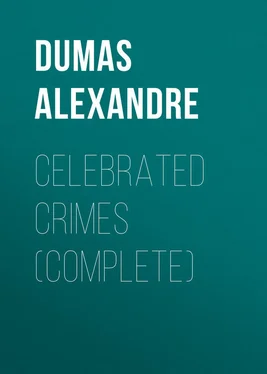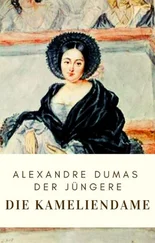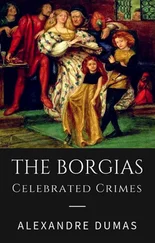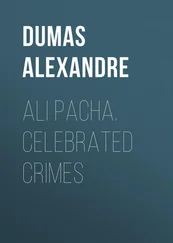Alexandre Dumas - Celebrated Crimes (Complete)
Здесь есть возможность читать онлайн «Alexandre Dumas - Celebrated Crimes (Complete)» — ознакомительный отрывок электронной книги совершенно бесплатно, а после прочтения отрывка купить полную версию. В некоторых случаях можно слушать аудио, скачать через торрент в формате fb2 и присутствует краткое содержание. Жанр: literature_19, foreign_antique, foreign_prose, на английском языке. Описание произведения, (предисловие) а так же отзывы посетителей доступны на портале библиотеки ЛибКат.
- Название:Celebrated Crimes (Complete)
- Автор:
- Жанр:
- Год:неизвестен
- ISBN:нет данных
- Рейтинг книги:3 / 5. Голосов: 1
-
Избранное:Добавить в избранное
- Отзывы:
-
Ваша оценка:
- 60
- 1
- 2
- 3
- 4
- 5
Celebrated Crimes (Complete): краткое содержание, описание и аннотация
Предлагаем к чтению аннотацию, описание, краткое содержание или предисловие (зависит от того, что написал сам автор книги «Celebrated Crimes (Complete)»). Если вы не нашли необходимую информацию о книге — напишите в комментариях, мы постараемся отыскать её.
Celebrated Crimes (Complete) — читать онлайн ознакомительный отрывок
Ниже представлен текст книги, разбитый по страницам. Система сохранения места последней прочитанной страницы, позволяет с удобством читать онлайн бесплатно книгу «Celebrated Crimes (Complete)», без необходимости каждый раз заново искать на чём Вы остановились. Поставьте закладку, и сможете в любой момент перейти на страницу, на которой закончили чтение.
Интервал:
Закладка:
All along the road Cavalier and his men met with a courteous reception; at Macon they found orders awaiting them to halt. Cavalier at once wrote to M. de Chamillard to tell him that he had things of importance to communicate to him, and the minister sent a courier of the Cabinet called Lavallee to bring Cavalier to Versailles. This message more than fulfilled all Cavalier's hopes: he knew that he had been greatly talked about at court, and in spite of his natural modesty the reception he had met with at Times had given him new ideas, if not of his own merit, at least of his own importance. Besides, he felt that his services to the king deserved some recognition.
The way in which Cavalier was received by Chamillard did not disturb these golden dreams: the minister welcomed the young colonel like a man whose worth he appreciated, and told him that the great lords and ladies of the court were not less favourably disposed towards him. The next day Chamillard announced to Cavalier that the king desired to see him, and that he was to keep himself prepared for a summons to court. Two days later, Cavalier received a letter from the minister telling him to be at the palace at four o'clock in the afternoon, and he would place him on the grand staircase, up which the king would pass.
Cavalier put on his handsomest clothes, for the first time in his life perhaps taking trouble with his toilet. He had fine features, to which his extreme youth, his long fair hair, and the gentle expression of his eyes lent much charm. Two years of warfare had given him a martial air; in short, even among the most elegant, he might pass as a beau cavalier.
At three o'clock he reached Versailles, and found Chamillard waiting for him; all the courtiers of every rank were in a state of great excitement, for they had learned that the great Louis had expressed a wish to meet the late Cevenol chief, whose name had been pronounced so loud and so often in the mountains of Languedoc that its echoes had resounded in the halls of Versailles. Cavalier had not been mistaken in thinking that everyone was curious to see him, only as no one yet knew in what light the king regarded him, the courtiers dared not accost him for fear of compromising their dignity; the manner of his reception by His Majesty would regulate the warmth of his reception by everyone else.
Met thus by looks of curiosity and affected silence, the young colonel felt some embarrassment, and this increased when Chamillard, who had accompanied him to his appointed place, left him to rejoin the king. However, in a few moments he did what embarrassed people so often do, hid his shyness under an air of disdain, and, leaning on the balustrade, crossed his legs and played with the feather of his hat.
When half an hour had passed in this manner, a great commotion was heard: Cavalier turned in the direction from which it came, and perceived the king just entering the vestibule. It was the first time he had seen him, but he recognized him at once. Cavalier's knees knocked together and his face flushed.
The king mounted the stairs step by step with his usual dignity, stopping from time to time to say a word or make a sign with head or hand. Behind him, two steps lower, came Chamillard, moving and stopping as the king moved and stopped, and answering the questions which His Majesty put to him in a respectful but formal and precise manner.
Reaching the level on which Cavalier stood, the king stopped under pretext of pointing out to Chamillard a new ceiling which Le Brun had just finished, but really to have a good look at the singular man who had maintained a struggle against two marshals of France and treated with a third on equal terms. When he had examined him quite at his ease, he turned to Chamillard, pretending he had only just caught sight of the stranger, and asked:
"Who is this young gentleman?"
"Sire," answered the minister, stepping forward to present him to the king, "this is Colonel Jean Cavalier."
"Ah yes," said the king contemptuously, "the former baker of Anduze!"
And shrugging his shoulders disdainfully, he passed on.
Cavalier on his side had, like Chamillard, taken a step forward, when the scornful answer of the great king changed him into a statue. For an instant he stood motionless and pale as death, then instinctively he laid his hand on his sword, but becoming conscious that he was lost if he remained an instant longer among these people, whom not one of his motions escaped, although they pretended to despise him too much to be aware of his presence, he dashed down the staircase and through the hall, upsetting two or three footmen who were in his way, hurried into the garden, ran across it at full speed, and regaining his room at the hotel, threw himself on the floor, where he rolled like a maniac, uttering cries of rage, and cursing the hour when, trusting to the promises of M. de Villars, he had abandoned the mountains where he was as much a king as Louis XIV at Versailles. The same evening he received orders to leave Paris and rejoin his regiment at Macon. He therefore set out the next morning, without seeing M. de Chamillard again.
Cavalier on arriving at Macon found that his comrades had had a visit from M. d'Aygaliers, who had come again to Paris, in the hope of obtaining more from the king than M. de Villars could or would grant.
Cavalier, without telling his comrades of the strange manner in which the king had received him, gave them to understand that he was beginning to fear that not only would the promises they had received be broken, but that some strange trick would be played upon them.
Thereupon these men, whose chief and oracle he had been for so long, asked him what they ought to do; Cavalier replied that if they would follow him, their best course and his would be to take the first opportunity of gaining the frontier and leaving the country. They all declared themselves ready to follow him anywhere. This caused Cavalier a new pang of regret, for he could not help recollecting that he had once had under his command fifteen hundred men like these.
The next day Cavalier and his comrades set out on their march without knowing whither they were being taken, not having been able to obtain any information as to their destination from their escort – a silence which confirmed them in their resolution. As soon, therefore, as they reached Onnan, Cavalier declared that he considered that the looked-for opportunity had arrived, asking them if they were still in the same mind: they returned that they would do whatever he advised. Cavalier then ordered them to hold themselves in readiness, Daniel offered up a prayer, and the prayer ended, the whole company deserted in a body, and, crossing Mont Belliard, entered Porentruy, and took the road to Lausanne.
Meantime d'Aygaliers, in his turn, arrived at Versailles, with letters from M. de Villars for the Duke of Beauvilliers, president of the king's council, and for Chamillard. The evening of his arrival he delivered these letters to those to whom they were addressed, and both gentlemen promised to present him to the king.
Four days later, Chamillard sent word to d'Aygaliers that he was to be next day at the door of the king's chamber at the time when the council entered. D'Aygaliers was punctual, the king appeared at the usual hour, and as he paused before d'Aygaliers, Chamillard came forward and said:
"Baron d'Aygaliers, sire."
"I am very glad to see you, sir," said the king, "for I am very much pleased with the zeal you have displayed in Languedoc in my service – very much pleased indeed."
"Sire," answered d'Aygaliers, "I consider myself most unfortunate in that I have been able to accomplish nothing deserving of the gracious words which your Majesty deigns to address me, and I pray God of His grace to grant me in the future an opportunity of proving my zeal and loyalty in your Majesty's service more clearly than hitherto."
Читать дальшеИнтервал:
Закладка:
Похожие книги на «Celebrated Crimes (Complete)»
Представляем Вашему вниманию похожие книги на «Celebrated Crimes (Complete)» списком для выбора. Мы отобрали схожую по названию и смыслу литературу в надежде предоставить читателям больше вариантов отыскать новые, интересные, ещё непрочитанные произведения.
Обсуждение, отзывы о книге «Celebrated Crimes (Complete)» и просто собственные мнения читателей. Оставьте ваши комментарии, напишите, что Вы думаете о произведении, его смысле или главных героях. Укажите что конкретно понравилось, а что нет, и почему Вы так считаете.












